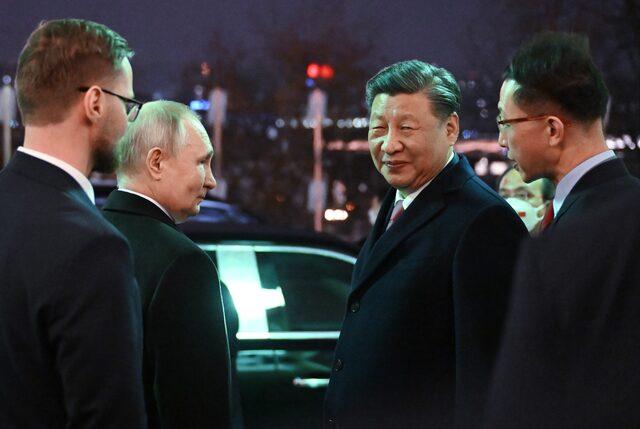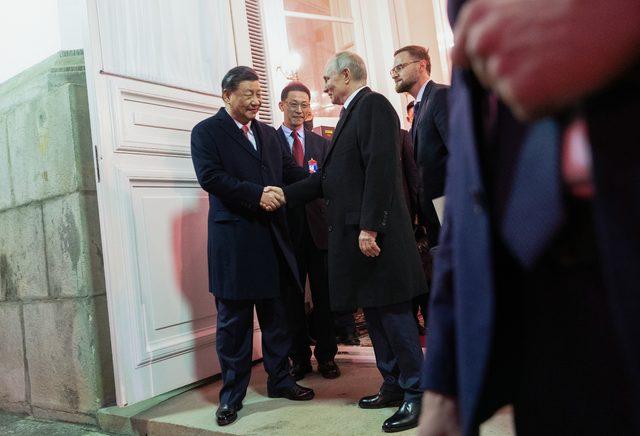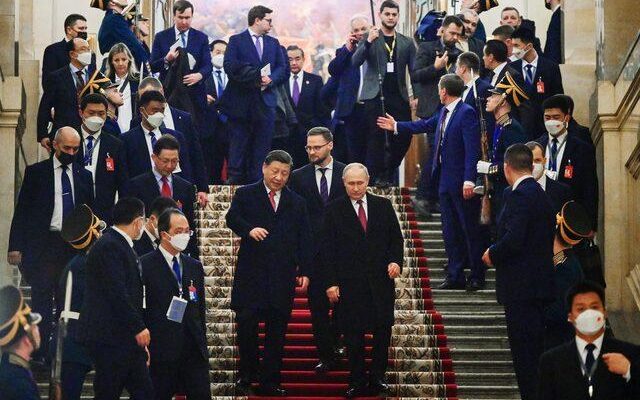Xi met with Putin in the Kremlin during the ongoing Russia-Ukraine war. The leaders signed agreements aimed at promoting cooperation between the two countries and signaled a new chapter in their relations. Xi left Moscow to return to his country after a two-day official visit. Meanwhile, the world press saw Xi’s message with the headline “Death of Democracy” and described it as “shuddering”.
PUTIN HAS SENDED
Chinese President Xi Jinping concluded his contacts in Moscow, the capital of Russia, where he paid an official visit on Monday, March 20. President Xi, who held high-level contacts for two days, was bid farewell from the Kremlin by his Russian counterpart, Vladimir Putin.

“WE ARE MAKING THIS CHANGE”
As Xi was sent off at the door, he said, “There are changes happening now that we haven’t seen in 100 years, and we are the ones driving these changes together.” Putin replied, “I agree”.
Xi then extended his hand to Putin and said, “Take care of yourself, my dear friend.” “Have a nice trip,” Putin replied, holding Xi’s hand with both hands.
Xi left the country by going to Vnukovo Airport in the capital Moscow to return to China.

JOINT NOTICE WAS SIGNED
Chinese President Xi had an informal meeting with Putin that lasted 4.5 hours on Monday. Xi met with Russian Prime Minister Mihali Mishustin on Tuesday, and later met with Putin again for an official meeting. The two leaders signed the “joint declaration on comprehensive partnership and deepening strategic cooperation”. During the talks, China’s peace plan for the resolution of the Ukraine crisis was also discussed. Regarding China’s proposal, Putin said, “Many of the provisions of the peace plan proposed by China overlap with Russia’s approaches. This can be used as a basis for a peaceful solution when the West and Kiev are ready for it. But right now we don’t see that they are ready for that.”
CHINA’S ATTITUDE
The Russia-Ukraine war, which started at a time when geostrategic rivalry and regional tensions between China and the USA increased, led the Beijing administration to adopt a stance close to Moscow, which faces similar challenges with the perception of a “common enemy”.
While the Beijing administration avoided using the words “war” and “occupation” after the start of the conflict, it was among the few countries that did not condemn Moscow by abstaining from the vote in the UN General Assembly.
On February 24, the anniversary of the war, China announced a 12-item “attitude document” containing its proposals for a political solution to the crisis. It was emphasized in the document that the sovereignty of countries should be respected, legitimate security concerns should be taken into account, unilateral sanctions should be ended, and a ceasefire should be achieved by gradually reducing tensions.
The ceasefire proposal was not accepted by the USA and the European Union, as well as by Ukraine, who perceived the proposal as an imposition of acceptance of the de facto situation. The Kiev administration stated that a peace under these conditions would mean “freezing the war”.
Russia also stated that it attaches importance to China’s opinion, but that the necessary conditions for the transition to the path of peace in the solution of the Ukraine issue are not formed in the current conditions.
(UAV-AA)
